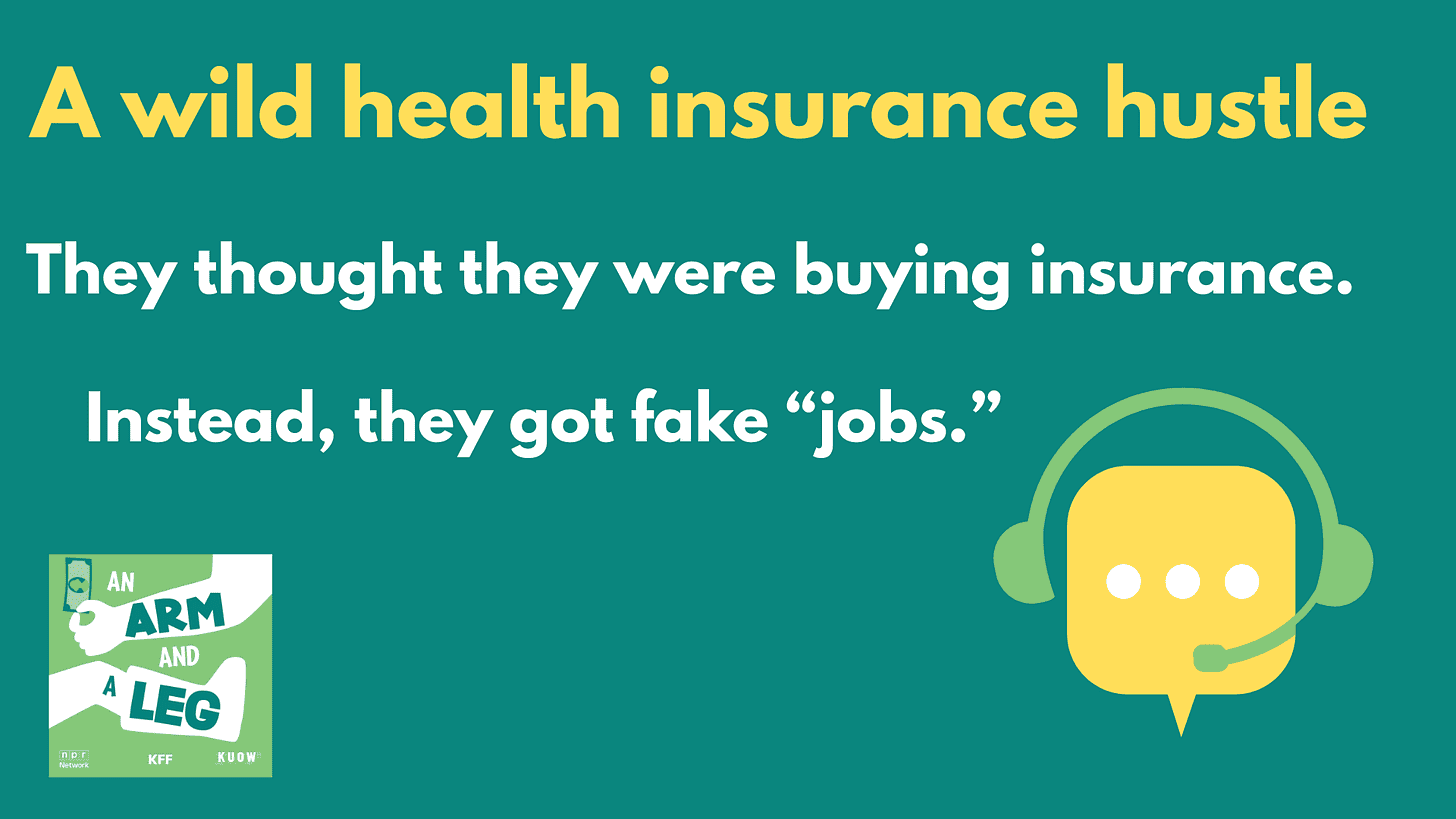They thought they bought insurance. Turned out, they had a new “job.”
Hey there —
Here’s one way today’s podcast episode is timely: It’s not too early to start planning on how to avoid a 2026 health-insurance nightmare. Because, there will be some.
It looks like premiums will be going up a LOT for Obamacare plans — like 18 percent, on average. Which is huge.
Honestly, that’s a nightmare of its own, and next week my colleague Claire Davenport will have a guide to what’s new for 2026.
But today’s show offers a vivid reminder: Shopping for insurance outside the world of healthcare.gov puts you in a world of hustlers, and opens you up to new worlds of hurt.
New Yorkers Sarah and Joe Strohmenger thought the plan a telemarketer offered them would be a good deal: Their doctors, meds, tests? All covered.
And insurance, they figured, was a regulated business. “We’re thinking it’s monitored,” Sarah told me. “We had no clue that this was kind of like a free for all.”
Free for all is right. Not only did the plan they bought leave them on the hook for thousands of dollars in medical bills, but they found themselves with no legal recourse.
As Bloomberg News reporters Zach Mider and Zeke Faux discovered: The plan Joe and Sarah had paid for wasn’t even insurance.
What Sarah and Joe got instead — a skimpy health plan tied to a “job” they had no idea they’d signed up for — fell into a legal grey area that no one regulates. Not states, not the feds.

It’s a wild, infuriating, and honestly fascinating story: The guy behind what Bloomberg calls the “fake jobs” is a former TV sitcom writer who thinks he’s actually solving an important problem.
And this is just one especially weird example of what can happen when you open yourself up to buying health insurance over the phone, after turning to Google.
Zach and Zeke published a follow-up — about a wild setup involving deepfakes of celebrities like Taylor Swift and Steve Harvey. The stories ran under the heading “Health Care Hustlers.”
“In reporting both of these stories,” Zeke told me, “I think what we learned is that there is kind of a subculture of call center operators who have turned what seems like a pretty boring business selling health insurance into a get-rich-quick kind of operation.”
Here’s what to do instead
Take a minute now to plan for your 2026 insurance — whether you get it through work, or you have to buy it on your own — by doing some homework.
Even under less-nightmarish circumstances, shopping for health insurance is wildly complex. There are a million arcane terms to learn. And most of us need help setting up the math. You can hear my family struggling with it in an early episode.
AND… we’ve published some pretty good guides to figuring all this out. And we’ve pulled them together in a Starter Pack on our new website.
Seriously, the choices this year are not going to be pretty. Most of us will have some unpleasant decisions to make.
We may as well brush up on the math and vocabulary ahead of time. I’m not saying put down your beach reading right now, but don’t wait too long.
So that at least when we have to make those choices, we know we’re doing them with the best information possible. And we won’t have to go through math and vocab lessons at the same time.
And again: Claire will be here next week, with answers to some of the 2026-specific questions.
Till then, take care of yourself,
— Dan
Get the First Aid Kit Newsletter!
First Aid Kit
Get our latest tips for dealing with the healthcare-industrial complex.

